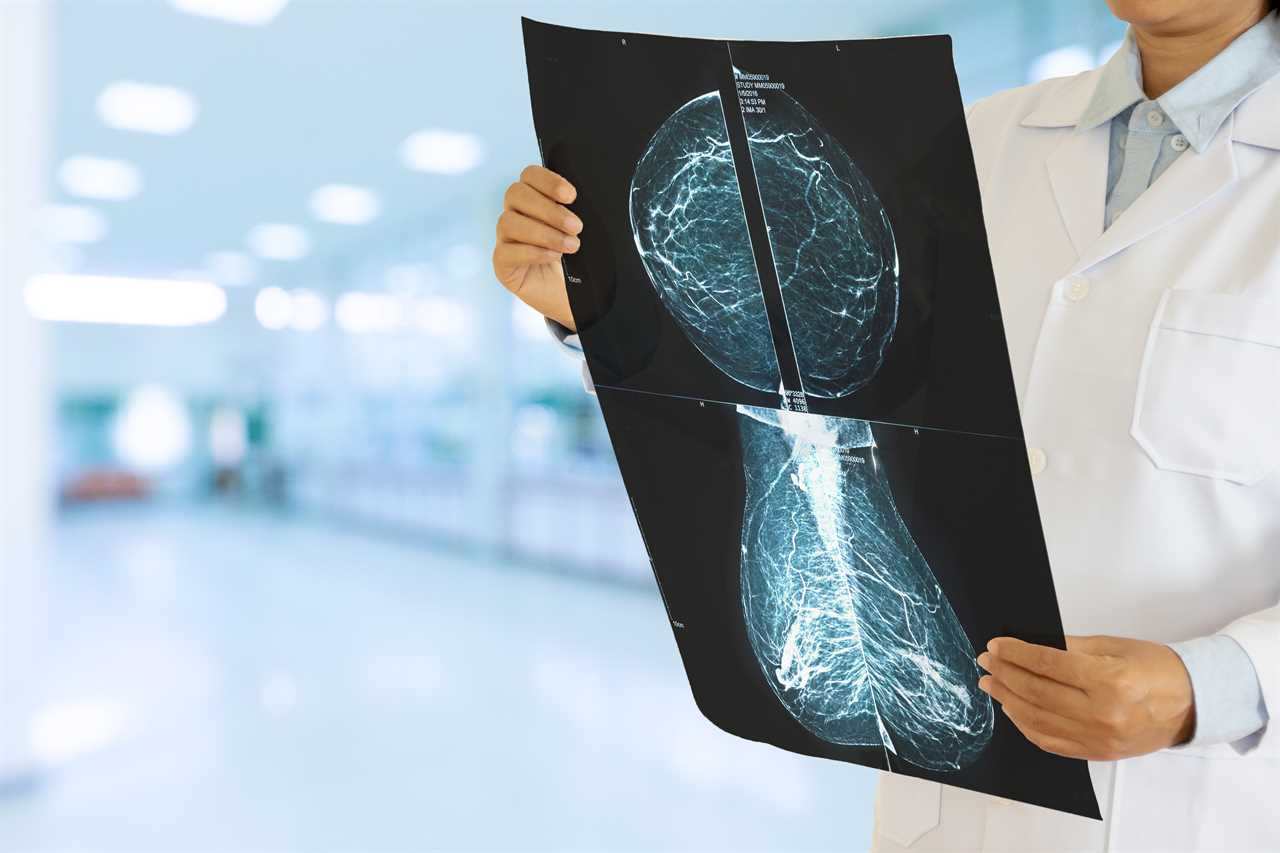AI could cut waiting times for breast cancer screening by nearly halving medics’ workloads, scientists say.
The tech is as good at detecting the disease as two radiologists working together, a trial suggested.

Unrecognizable female gynecologist looking at a mammogram checking for breast cancer at the hospital.
Swedish researchers said it means screening programmes could drop the need for mammograms to be read by two separate medics.
Dr Kristina Lang, of Lund University, said: “The greatest potential of AI right now is that it could allow radiologists to be less burdened by the excessive amount of reading.
“While our AI-supported screening system requires at least one radiologist in charge of detection, it could potentially do away with the need for double reading.
“This would ease the pressure on workloads and enable radiologists to focus on more advanced diagnostics while shortening waiting times for patients.”
Around 55,000 women and 400 men are diagnosed with breast cancer every year in the UK.
Women registered with a GP in Britain are invited for NHS breast screening every three years between the ages of 50 and 71.
Previous research has shown AI could be better at spotting whether breast cancer is likely to spread than traditional methods that assess age and family history.
The latest study, published in the Lancet Oncology, is the first randomised controlled trial of using the tech for breast cancer screening and looked at over 80,000 women aged 40 to 80.
Researchers estimated AI saved around four-and-a-half months of work by cutting the need for a second radiologist to analyse mammograms unless the tech flagged a high-risk scan.
The AI-supported screening found a fifth more cancers compared to double-reading mammograms.
In total, the radiologists’ workload was cut by 44 per cent.
Independent experts said the “exciting” research suggests AI would greatly improve Britain’s screening programme, if results are replicated in further studies.
Professor Stephen Duffy, of Queen Mary University of London, said: “The results illustrate the potential for artificial intelligence to reduce the burden on radiologist’s time.
“This is an issue of considerable importance in many breast screening programmes, including the NHS Programme in the UK.”
Dr Kotryna Temcinaite, of Breast Cancer Now, said: “Detecting breast cancer early is crucial as the sooner it’s diagnosed the better the chance of treatment being successful.
“We look forward to the final results of this exciting Swedish trial to understand if AI can help improve breast cancer screening and increase capacity in the future.”






